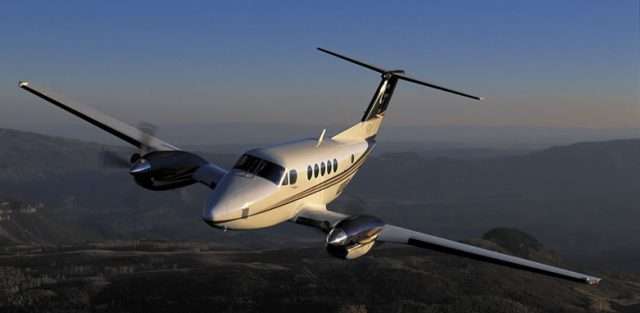Propjet

A propjet is a term that’s synonymous with turbo prop. It basically refers to a turbine engine that drives an aircraft propeller. If you have ever ridden in a private Cessna charter, you’ve experienced a propjet aircraft.
How it Works
A propjet consists of:
- An intake
- Combustor
- Compressor
- Propelling nozzle
- Turbine
Air is pulled in by the intake. The compressor then compresses it. At this point, fuel is added to the compressed air in the combustor. This causes the fuel-air mixture to combust. The gases formed by combustion are then expanded through the turbine. Some of the energy created is used to drive the turbine, but the rest is used to power the propeller. The gases continue to expand in the propelling nozzle and are exhausted from there to atmospheric pressure. However, the propelling nozzle delivers a comparatively small proportion of the thrust created.
The Propjet Benefits
Propjets are most effective at flight speeds lower than 450 mph. This is because the jet velocity of the exhaust and propeller is relatively low. One big benefit to this is the propjet’s ability to burn less fuel per passenger. When booking a charter with a propjet, like a private Cessna charter, this equals reduced rates for clients.
A propjet is a term that’s synonymous with turbo prop. It basically refers to a turbine engine that drives an aircraft propeller. If you have ever ridden in a private Cessna charter, you’ve experienced a propjet aircraft.
How it Works
A propjet consists of:
- An intake
- Combustor
- Compressor
- Propelling nozzle
- Turbine
Air is pulled in by the intake. The compressor then compresses it. At this point, fuel is added to the compressed air in the combustor. This causes the fuel-air mixture to combust. The gases formed by combustion are then expanded through the turbine. Some of the energy created is used to drive the turbine, but the rest is used to power the propeller. The gases continue to expand in the propelling nozzle and are exhausted from there to atmospheric pressure. However, the propelling nozzle delivers a comparatively small proportion of the thrust created.
The Propjet Benefits
Propjets are most effective at flight speeds lower than 450 mph. This is because the jet velocity of the exhaust and propeller is relatively low. One big benefit to this is the propjet’s ability to burn less fuel per passenger. When booking a charter with a propjet, like a private Cessna charter, this equals reduced rates for clients.








